Religions for Peace Hosts “Welcoming the Other Strengthening Advocacy and Action for Refugees and Other Forcibly Displaced Communities” in Celebration of World Refugee Day
World Refugee Day, observed annually on June 20, highlights the resilience and strength of forcibly displaced individuals who flee conflict, violence, or persecution. With over 114 million forcibly displaced people worldwide, this day emphasises the urgent need for international solidarity to protect their rights and support their future. Faith communities, including Religions for Peace, have a long history of providing sanctuary and humanitarian aid to refugees. For instance, at the 9th World Assembly of Religions for Peace in 2013, over 600 religious leaders committed to “Welcoming the Other” or “Welcoming the Stranger”. Collaborations, such as the Interfaith Affirmations on Belongingness and the Multi-Religious Council of Leaders (MRCL), formed with the United Nations Office of the High Commissioner for Refugees (UNHCR), continue to advocate for and support refugees as well as look into addressing the root causes of forcibly displacement.
It is in this context that on 20 June 2024, Religions for Peace hosted the virtual webinar, Welcoming the Other: Strengthening Advocacy and Action for Refugees and Other Forcibly Displaced Communities, bringing together religious and faith leaders, former refugees, youth, and other stakeholders, to engage in dialogue and best practices to strengthen advocacy and mobilisation efforts for the protection and participation of refugees and other forcibly displaced communities in decision-making and peacebuilding processes.
The event began with opening remarks from Dr. Francis Kuria, Secretary General, Religions for Peace, who provided an overview of World Refugee Day, emphasising its significance in recognising the strength and resilience of those displaced from their homes. Dr. Kuria highlighted that religious leaders have long offered their places of worship and homes as sanctuaries for those fleeing conflict and natural disasters, providing much-needed refuge and solace. People of faith continue to play a crucial role in delivering humanitarian assistance across the globe, demonstrating the enduring power of compassion and community.
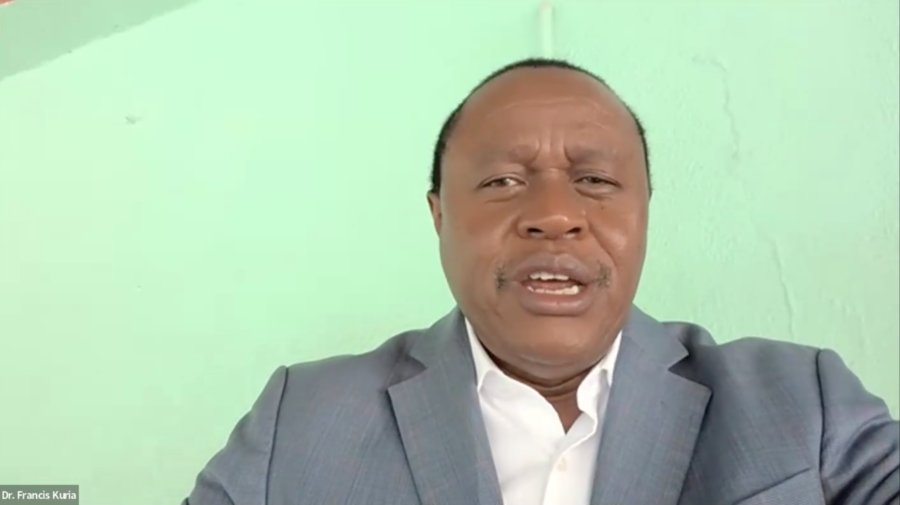
Underscoring the enduring role of religious leaders in offering places of worship and homes as sanctuaries for people fleeing conflict and persecution, H.E. Ms. Ruvendrini Menikdiwela, Assistant High Commissioner for Protection, Office of the United Nations High Commissioner for Refugees (UNHCR), noted that refugees need the solidarity of faith actors more than ever, as the right to asylum is increasingly under threat in many parts of the world. She continued to address the challenges faced by refugee host communities, such as strained relations with refugees due to competition for jobs and resources. However, she emphasised that refugees bring valuable skills and qualifications that can enrich host societies and help them flourish. She noted that no action is too small, and that it is crucial to have advocates who support refugees and back policies that benefit them. She emphasised the critical role that people of faith play in providing humanitarian assistance, fostering community, and advocating for the equitable distribution of resources. H.E. Ms. Menikdiwela then concluded her remarks by calling upon religious leaders to advocate for a world where refugees are welcome.
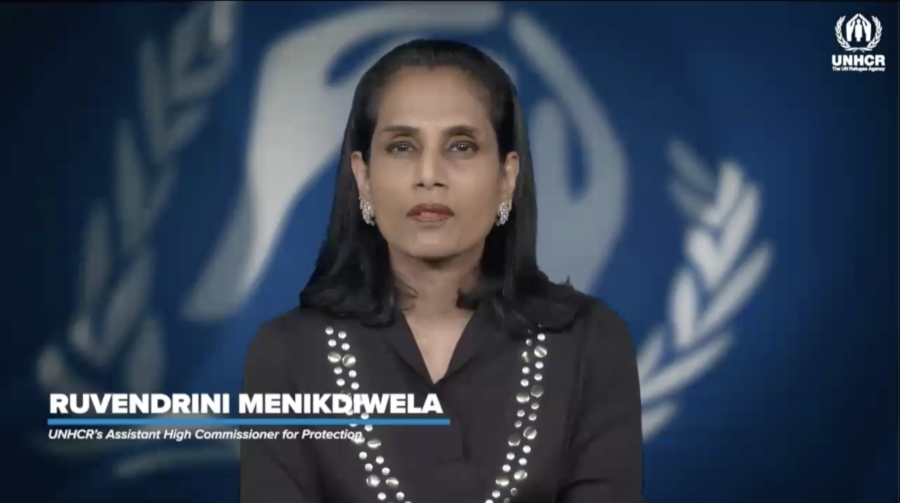
Echoing the message of the Assistant High Commissioner for Protection, H.E. Cardinal Charles Bo, Archbishop of Yangon; President, Federation of Asian Bishops’ Conference; Co-President, Religions for Peace, stressed that many different religious traditions teach the importance of ‘welcoming the other’ and helping those who are displaced. Highlighting examples of teachings from Christianity, Buddhism, Islam, and Judaism, Cardinal Bo emphasised the need for compassion, hospitality, and justice for all. He urged for simple actions such as offering friendship which can be a meaningful start in welcoming refugees. Advocating for policy changes to address the root causes of displacement, Cardinal Bo noted that one of the most effective ways to support refugees is through providing education and employment opportunities, equipping them with the knowledge and skills they need to rebuild their lives.
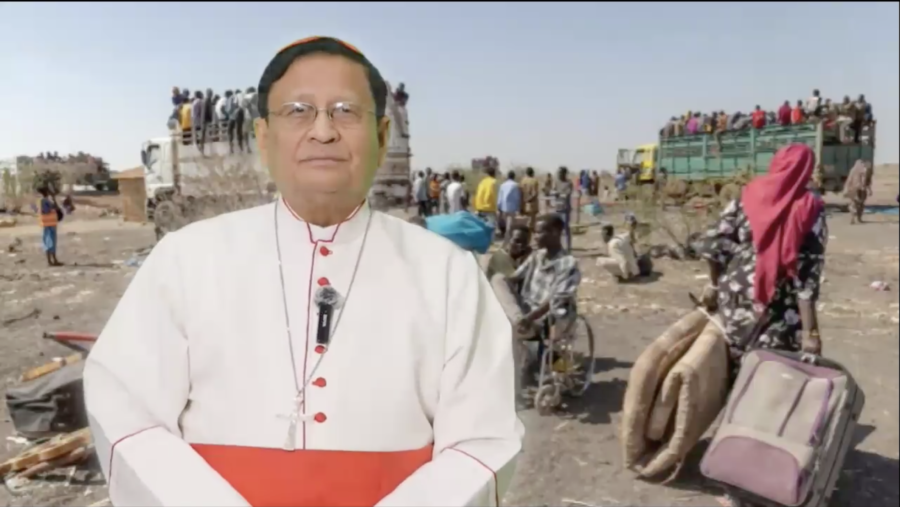
Moderating the panel discussion, Ms. Deepika Singh, Deputy Secretary General, Religions for Peace, welcomed panellists and participants and reminded them that World Refugee Day not only honours those who have fled their homes, but it is a day to amplify their voices and celebrate their courage and contributions in new communities as well as share how we have and need to continue to further provide solidarity and support to them. She noted that it is critical to come together to further strengthen efforts for the rights and well-being of refugees and the importance of multi-pronged approach as well as multi-religious and multi-sectoral collaboration, dialogue, and action to bring about meaningful change. She also noted that Religions for Peace recognises and acknowledges the need for refugees, displaced communities, women, and youth to be involved in decision-making processes to ensure more sustainable solutions.
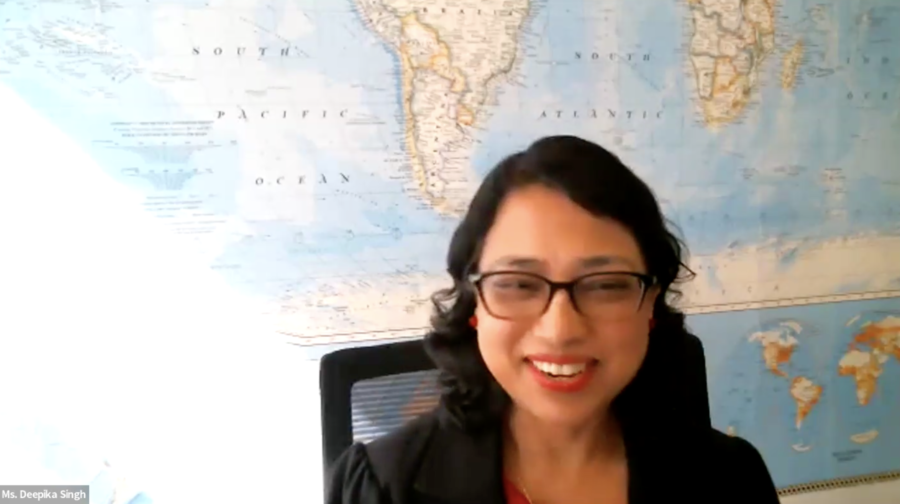
The plight of refugees is a challenge that not many can understand until they have been in that situation themselves. To shed light on their own journey, Dr. Hayder Karim, Former Religions for Peace Coordinator for Iraq; Former Iraqi Refugee, and Rev. Tijwong Hather Agwet, Former Presidential Advisor on Religious Affairs, Republic of South Sudan, detailed their lives as an Iraqi refugee living in Sweden and a Sudanese refugee living in Egypt, respectively. Despite their struggles, they are optimistic and continue to have hope for the future. Dr. Karim was a doctor and social activist in Iraq and faced many challenges adapting to his new reality in Sweden. However, he remained hopeful and despite his challenges is now grateful for the opportunity to contribute to his community that helped him when he first arrived in Sweden. Rev. Agwet hopes that as a religious leader, he can continue to be a channel for help for those in need. He also noted that one way to improve the experience of a refugee is to implement effective communication tactics with refugees and ensure they are taught how to navigate new communities, cultures, and customs.
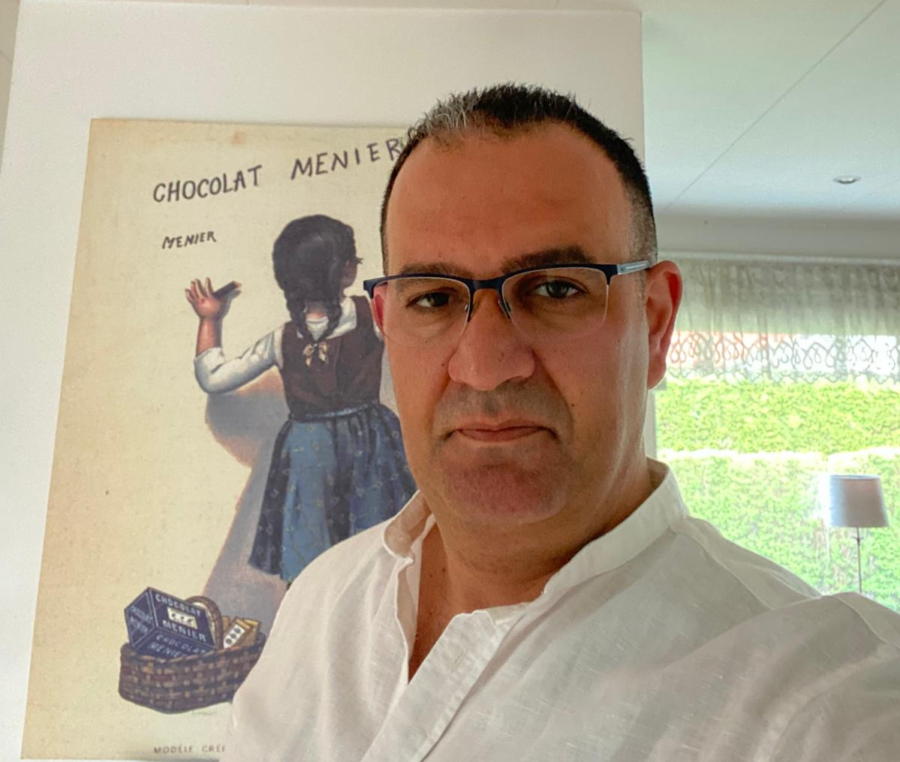
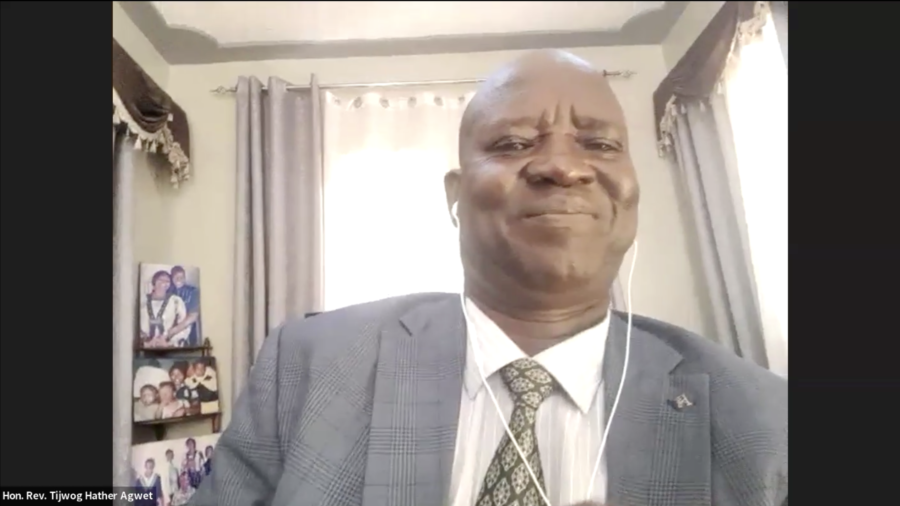
Drawing from data from the report released on the 2024 World Refugee Day, Ms. Şafak Pavey, Senior Adviser, United Nations Office of the High Commissioner for Refugees (UNHCR), noted that three-quarters of society have positive attitudes toward refugees and that low to middle income countries in the Middle East, Africa, and Latin America host 80% of the world’s refugee population. She inferred that there is a cultural inclination in these regions to welcome and support refugees, which emphasise the importance of compassion and hospitality, especially in faith communities. She noted that faith-based organisations have played a significant role in shifting opinions and attitudes towards refugees. Religious leaders’ efforts in promoting understanding and compassion have been instrumental in fostering a more inclusive and supportive environment for displaced individuals and that by leveraging their influence and teachings, these organisations continue to inspire communities to embrace refugees with open hearts and minds.
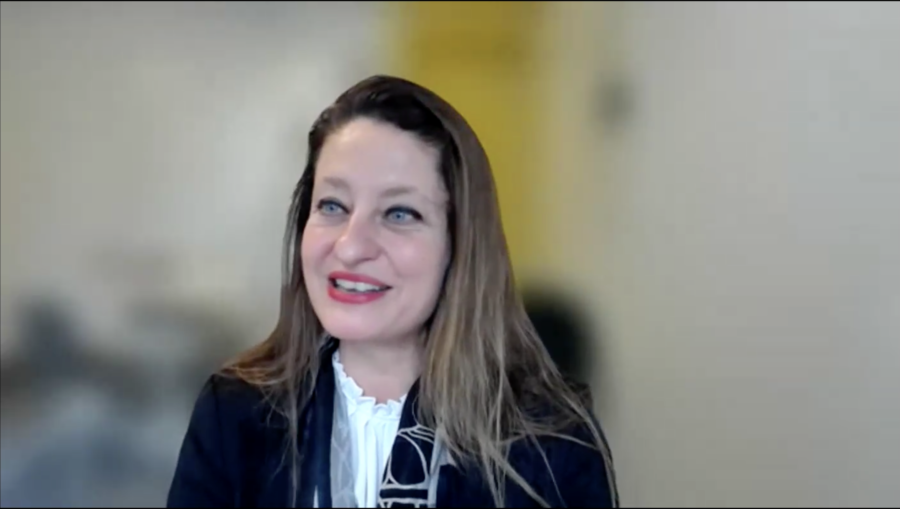
Ms. Emina Frljak, Programme Coordinator, Youth for Peace; Deputy Coordinator, Religions for Peace International Youth Committee (IYC); Member, Religions for Peace-UNHCR Multi-Religious Council of Leaders (MRCL), addressed the critical issue of gender-based violence (GBV) faced by women and girls during displacement. These already vulnerable groups become even more susceptible to various forms of abuse and displacement, which often lead to a decline in mental health, with many experiencing anxiety, depression, and post-traumatic stress disorder (PTSD). Children and youth, frequently separated from their families, suffer from fear and insecurity, which can hinder their emotional development and ability to form secure attachments later in life. She emphasised that these issues are deeply interconnected, creating a vicious cycle that exacerbates the suffering of displaced populations and that to effectively address these challenges, multi-stakeholder partnership is essential.
She also offered actions that could be taken to address issues of hate speech against refugees such as: the need to empower women and youth to counter hateful narrative; facilitating dialogue and understanding between different groups; providing psychosocial support for those who are targets of hate speech; and holding governments accountable to develop new policies that will work to address hate speech. She provided examples of the recent work of the Religions for PeaceInternational Youth Committee (IYC), most notably the campaign ‘Welcoming the Neighbour’ as opposed to ‘Welcoming the Other’ or ‘Welcoming the Stranger’, as changes in how incoming refugees are addressed has effects on the public’s perception and feelings.

Drawing from his experiences living in the United States, Rabbi Rick Jacobs, President, Union for Reform Judaism; Honorary President, Religions for Peace; Member, Religions for Peace-UNHCR Multi-Religious Council of Leaders (MRCL), noted that we live in polarising times, where the language used to describe refugees is often dehumanising. He stressed that the religious community must speak up regularly, not only within their faith circles but also in everyday communities, to emphasise that refugees are not “others” but part of the human family. Rabbi Jacobs provided an inspiring example of this unity at a summer camp for refugee children in California, United States, staffed by religious leaders from various faiths. This initiative shows these children that they are loved and supported by the faith community, reinforcing a sense of belonging and acceptance.
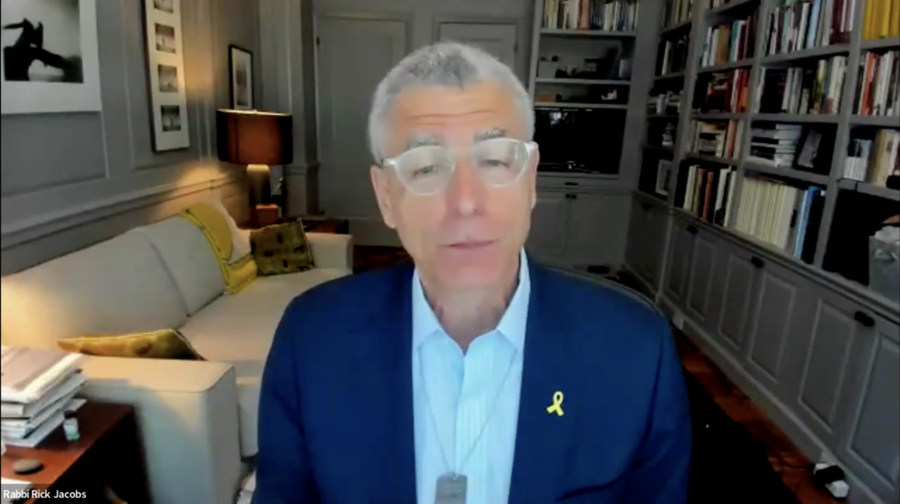
The speakers’ call to action was clear: religious leaders must intensify their efforts to work with one another and in partnership with other stakeholders such as government, international organisations, and civil society to ensure a world where refugees are welcomed and supported. Religions for Peace persists in spreading messages of hope and love to refugees and displaced persons and strives to increase resources available to them. The need to foster a sense of shared well-being and flourishing grounded in the sacred was underscored by the participants, reinforcing the commitment to support those who have been uprooted from their homes.
Download the Full Report